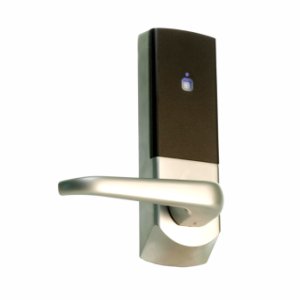Understanding Access Control - A Beginners Guide
Security is a high priority issue for any business owner, regardless of the size of that business. The bigger and more successful the business becomes the harder the security challenge is, but a business of any size has a basic duty to protect its employees first and foremost, and then to protect the assets of the business, ie. buildings, product, materials, tools and equipment. The primary objective of business security is controlling who is authorised to be on site, and managing how this is done, and this can be carried out by an access control system.
A business is always faced with security threats, even if the level of risk differs. So a business needs to control its employees, as well as monitoring contractors, ie. people authorised to be on site but not employees of the company, and of course it needs to monitor the threat posed by intruders and anyone not authorised to be on site, and so access control systems are a way of doing that.
The importance of business security
Business security is relatively simple if the business is small, run from one office and has maybe two or three employees. Here, you have close visibility on everyone and only a small area to monitor and a small number of potential security threats. But mid-large-sized organisations have many more employees, may have multiple sites with multiple points of entry/exit and may operate on a 24/7 basis. So these types of business need a system which controls all the possible comings and goings triggered by the operations of the business.
While an employer has to safeguard the employees of the business, and the other physical assets of the business, it also needs to protect digital data, such as personal data, specifications and financial records. While digital data can also include intellectual property and information which gives the organisation a competitive advantage. So in this sense, security is not just about physical assets with financial value, but also digital assets with commercial value. With this in mind, it is important to recognise that security threats are largely external, but can also be internal.
What is an access control system?
Fundamentally, an access control system is a hardware and software interface; a management system which is centrally controlled and enables access to people displaying the correct credentials. These credentials can be decided upon by the business, and authorisation is granted to people who meet these credentials. This is usually demonstrated by issuing authorised people with a means of accessing the building. So authenticated people are issued with either a code or PIN number, a key card or fob, a barcode or QR code, or can use a biometric scanner to access the building. Whatever system is used, when this is displayed, a signal will be transmitted which unlocks a digital lock and enables access. Some access control systems have an audio or video capability, so somebody monitoring the system can award access to people on a case-by-case basis as they present themselves, but usually, access control is unmanned and people can authenticate themselves.
There are generally four types of access control system, which differ in terms of what access is given to authenticated people and who awards that authentication. These are:
- Discretionary access control
- Mandatory access control
- Role-based access control
- Attribute-based access control
Which system a business opts for will be decided internally and based on the nature of the operations and how security needs to be addressed. An administrator will be appointed to manage the access control system and authentication will be issued and managed, based on these four types of access control.
What are the benefits of an access control system?
- Security – Access control systems can be tailored to meet the security needs of the business and hence provide the controls necessary to safeguard the business from genuine, real-time security threats. This can be based on comprehensive risk assessments, and hence enable a dedicated system to be designed and implemented.
- Convenience – Keyless and contactless systems make employee access much quicker and simpler.
- Remote control – An access control system can be managed remotely by the central administrator, so any security breach or alarm activation can be reacted to at any time. This also means that authentication can be revoked or removed at any time, in light of a security issue.
- Monitoring – Most access control systems provide an audit trail whereby the business can see who is accessing the premises and when. This is useful from a security perspective but also has benefits for human resources, health & safety and for monitoring productivity and efficiencies.
- Flexibility – The main access control interface will usually be located at the main entry point to the building, but you can also link this to other interfaces if there is a multi-site location, or you have internal zones which you also wish to control for internal security reasons.
- 24/7 – Access control systems can be unmanned and hence can control security for businesses running 24/7 operations, or who promote flexible working.
- Compliance – Access control ensures the business knows who is on site and when, which can be useful for insurance and health & safety purposes.
- Integration – Most modern access control systems can be linked to other security systems, such as CCTV, intruder alarms, security lights and ANPR car park barriers, to provide a comprehensive security solution.
Check out the range of access control solutions from MB Direct
MB Direct has a wide range of access control systems which suit businesses of any shape or size and can provide robust security solutions, such as mechanical and digital locks, electronic keypads and audio and video door entry systems. These all form part of bespoke access control systems which can be designed to suit the specific security threats you face and the practical security solutions your business needs.